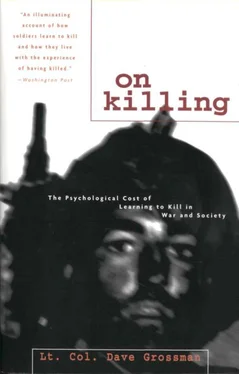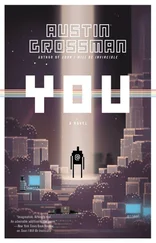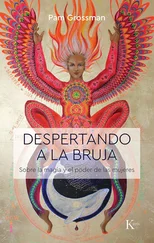• Demands of Authority= (intensity of demand for killing) × (legitimacy of obedience-demanding authority) × (proximity of obedience-demanding authority) × (respect for obedience-demanding authority)
• Group Absolution= (intensity of support for killing) × (number in immediate killing group) × (identification with killing group) × (proximity of killing group)
• Total Distance from Victim= (physical distance from victim) × (cultural distance from victim) × (social distance from victim) × (moral distance from victim) × (mechanical distance from victim)
• Target Attractiveness of Victim= (relevance of victim) × (relevance of available strategies) × (payoff in killer’s gain + payoff in victim’s loss)
• Aggressive Predisposition of Killer= (training/conditioning of the killer) × (past experiences of the killer) × (individual temperament of killer)
An equation that would permit us to tie in all of these factors and determine the resistance to a specific personal kill would look something like this:
Probability of Personal Kill =
(demands of authority) × (group absolution) ×
(total distance from victim) ×
(target attractiveness of victim) ×
(aggressive predisposition of killer)
Let us say that the baseline for all of these factors is 1. A baseline of 1 works well, since in our multiplicative equation this number would be neutral; any factor under 1 would influence all other factors downward, and any factor over 1 would interact to influence all other factors upward. Since these processes are all multiplicative, an extraordinarily low factor in any one area (such as .01 in aggressive predisposition) would have to be overcome through very high ratings in other factors. On the other hand, all other factors being equal, an extremely high rating in demands of authority (as seen in Milgram’s studies) or a high aggressive predisposition (as would be likely if the killer had recently had a buddy or a family member killed by the “enemy”) would result in a high probability of a personal kill or even the unrestrained killing resulting in war crimes and other atrocities.
Like most factor analyses, this one has probably not identified all of the factors that would influence this situation, but this model is certainly vastly more effective than anything we have had before — since, to the best of my knowledge, none has ever existed before. Much work is needed to truly quantify these factors, but I would hypothesize that the threshold for a personal kill in wartime would be lower than that in peacetime. In a peacetime killing (murder) the threshold would probably be significantly higher, but the basic factors might still generally apply. Certainly this model would apply to gang killings and most random street violence, but the most common form of murder is that committed by acquaintances and family members upon one another, and I believe that the psychological mechanics of that kind of killing are quite different from what we are studying here.
The only other time I have heard this process spoken of was by one particularly astute and unusually introspective British wing commander from the Gulf War. He noted that the RAF ground crews who supported his squadron felt like “impostors” because they had lived in a hotel, did not personally approach the enemy, and had not yet endured any Iraqi Scud missile attacks. However, they were only a few hundred meters from the U.S. National Guard unit that was subsequently hit by a Scud attack at considerable loss of life. “I hope,” he said, “that you will not misunderstand if I tell you that my ground crews felt a little better about themselves when the Americans were hit.” Again, instead of being diminished by friendly losses, they were strangely magnified and empowered by them.
This is the only place in this entire book where I have used a quote from fiction. I do so in this instance because Conrad’s Kurtz is an unparalleled representation of a man who is entrapped in the power of atrocity. This was superbly embellished and built upon in Marlon Brando’s portrayal of Kurtz in Apocalypse Now . In that movie Kurtz’s representation of how he was ensnared by the power of the Vietcong’s use of atrocity represents a singularly powerful insight into the dark attraction of atrocity.
The “obedience versus sympathy” and “cultural versus biological norm” conflicts, which may be at the root of this killing trauma, have been explored by Eibl-Eibesfeldt. He delves deeply into this area and relates how soldiers in firing squads have been traditionally drugged with alcohol and issued the random blank bullet to permit some form of denial. Even so, they often later needed psychological counseling. Eibl-Eibesfeldt also tells of the atonement rituals traditionally used in primitive tribes after killing the enemy.
Eibl-Eibesfeldt does not, however, examine the need for, and quality of, ritual atonement methods for dealing with the trauma of a personal kill in modem warfare. These modern atonement processes, and how they failed in Vietnam, are an important part of what we must attempt to examine and understand. But first we must complete our dissection of the stages of a personal kill.
A fixation is sometimes defined as too much pain or pleasure associated with a specific stimuli. Classical examples of Freudian fixations include individuals who are fixated by the delight of nursing and the trauma of being weaned (oral fixation) or individuals who have become fixated by traumatic toilet training (anal fixation).
Many veterans cut themselves off entirely from their emotions at the time of killing. They tell me (sincerely, I believe) that they feel now and felt then absolutely nothing. This is discussed elsewhere, but it is very important at this point to distinguish between these individuals who have denied and repressed their emotions and those who can truly enjoy killing without any resultant remorse.
But all would defend his right to reflect openly on the war as he saw it, in a forum of his peers. It is very much to the credit of Soldier of Fortune, the magazine in which this article was published, that for twenty years this was essentially the only national forum in which Vietnam veterans could write such deeply emotional, open, and often unpopular reminiscences of their war. The editors added that “(?)” to the title of this article as their subtle means of distancing themselves from the author’s statements, and let it go at that. The route of recovery from all combat trauma is through rationalization and acceptance, and this lifelong self-exploration process that I have termed “rationalization and acceptance” is exactly what occurs when veterans write, and read, these first-person narratives. I believe that writing and reading these narratives provide an extremely powerful form of therapy for these men. And I must deeply respect the courage and fortitude it took to both write and publish such accounts over the last twenty years.
Note that here the “thrill of the kill” is placed before the “terrible bitterness of losing a friend,” the latter being a trauma that is intentionally downplayed in relationship to the pleasure that the writer found in combat. It must be emphasized that such a fixation does not make an individual a “bad” person. On the contrary, it was men like this, with a thirst for adventure and addiction to excitement, who pioneered our nation, and it is men such as this whom our country depends upon as the backbone of our military force in time of war. And, again, there are numerous sound studies that demonstrate that the returning veteran represents no greater threat to society than already existed in the society. As always, the objective must be not to judge, but simply to understand.
Читать дальше







